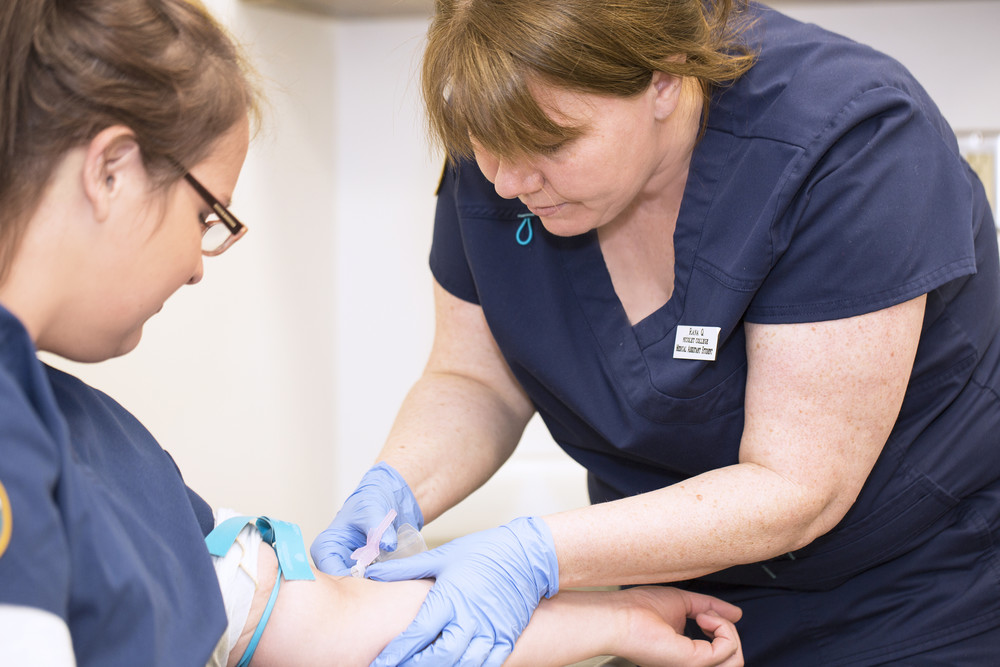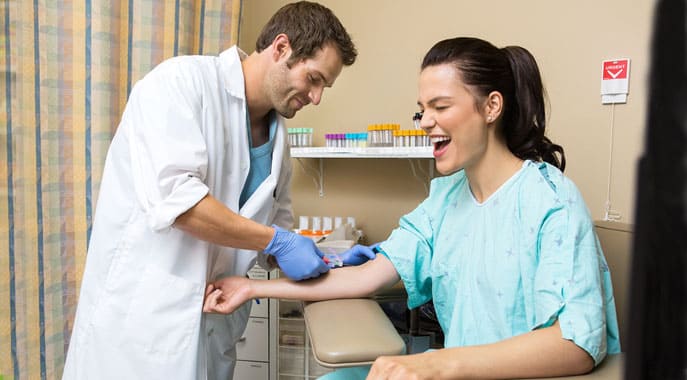Vital Variables to Take Into Consideration When Picking one of the most Ideal Medical College Educational Program for You
Selecting the most suitable medical institution curriculum is an essential choice that can considerably affect your academic trip and future occupation course. As aiming clinical professionals, the choice of curriculum should align with your personal understanding style and profession aspirations.
Personal Understanding Style

Medical institutions that use varied teaching approaches and sources can fit numerous finding out designs, promoting a inclusive and vibrant instructional setting. Inevitably, recognizing individual understanding choices encourages pupils to make enlightened decisions concerning their medical education, setting a solid foundation for their future professions in medical care.
Job Objectives Positioning

Furthermore, aligning profession objectives with the medical institution educational program can likewise enhance motivation and engagement throughout the academic journey. They are a lot more likely to remain dedicated and focused to their research studies when pupils see the straight relevance of their coursework to their future profession. As a result, when choosing a clinical college curriculum, it is crucial to very carefully think about exactly how well it aligns with one's job goals to make certain an effective and satisfying specialist course.
Mentor Techniques
Considering the alignment of career objectives with the selected clinical school curriculum, an evaluation of the training methods employed becomes critical in forming the discovering experience. The effectiveness of a clinical institution curriculum heavily counts on the training methods used by the organization. Various mentor techniques, such as lectures, small seminar, problem-based understanding, simulation-based training, and hands-on scientific experience, can dramatically affect just how well pupils grasp and maintain details.
Simulation-based training permits pupils to practice professional skills in a address regulated setting prior to engaging with real people. Hands-on clinical experience uses a direct understanding of person treatment and clinical methods.
When selecting a clinical college educational program, aspiring pupils must consider the training methodologies used to make sure that their learning preferences and toughness straighten with the academic technique of the institution.
Curriculum Adaptability
When assessing medical institution programs, analyzing the degree of educational program flexibility is important for possible students looking for a tailored academic experience. Curriculum flexibility describes the level to which students can individualize their learning courses within the medical school educational program. A curriculum that offers adaptability permits pupils to pursue their passions, emphasis on locations where they need more support, and take part in finding out experiences that line up with their career objectives.

Potential medical pupils must take into consideration just how a clinical school's curriculum adaptability straightens with their understanding preferences, occupation aspirations, and individual objectives. By choosing a program that offers the appropriate equilibrium of framework and versatility, trainees can maximize their academic experience and prepare themselves for successful jobs in medicine.
Clinical Exposure Opportunities
Exploring the practical application of medical understanding, professional exposure possibilities play an essential duty fit an extensive clinical education. These possibilities supply pupils with vital hands-on experience in real medical care settings, enabling them to connect the space in between theory and technique. When taking into consideration clinical school educational program, the high quality and quantity of scientific exposure have to be carefully reviewed.
Reliable medical exposure must offer a diverse variety of experiences throughout different specializeds, making certain that trainees are subjected to different clinical situations and individual demographics. Direct exposure to outpatient facilities, inpatient wards, surgical site theaters, and emergency divisions can help students establish a well-rounded understanding of various elements of medical care distribution. Additionally, chances for community-based treatment and communications with underserved populations can foster a much deeper gratitude for the social determinants of wellness.
Furthermore, the presence of supportive faculty and advisors during these scientific experiences can significantly boost the learning process. Faculty guidance and positive comments can help students review their medical experiences, identify locations for renovation, and improve their scientific skills and msc occupational therapy decision-making capabilities (Northeast Medical Institute CNA Classes Near me Stamford). On the whole, durable medical direct exposure opportunities are crucial for preparing future medical professionals to supply high quality person care properly
Final Thought
In conclusion, when selecting a medical college educational program, it is necessary to consider your individual discovering design, alignment with career purposes, educating methodologies, educational program versatility, and professional exposure possibilities. These variables play a crucial function in establishing one of the most ideal program for your expert and academic advancement. Make certain to thoroughly evaluate each aspect to make a notified choice that will best support your development in the medical field.
Understanding one's individual discovering style is essential when selecting a clinical school curriculum. By determining one's finding out design early on, aspiring clinical pupils can purposefully select a curriculum that caters to their strengths, eventually enhancing their learning experience and academic success.
When examining medical institution programs, examining the level of educational program versatility is crucial for possible students seeking a customized educational experience. Curriculum adaptability refers to the degree to which pupils can individualize their learning courses within the clinical college curriculum.In conclusion, when selecting a clinical institution educational program, it is vital to consider your personal knowing design, alignment with career objectives, educating techniques, curriculum adaptability, and scientific exposure chances.